[ad_1]
ASA Pens, Chennai
At the age of eight, L Subramaniam began collecting fountain pens inspired by his paternal uncle, a fountain pen collector. After working for 21 years in the corporate sector, Subramaniam decided to venture into entrepreneurship and founded ASA Pens in 2013.
“Making fountain pens was a natural choice,” he says, explaining how his pens are made using a traditional lathe set-up, and the “shape, design proportions, and polishing are done by hand”. Crafted from acrylic or ebonite rods, he says the rods are first cut to the required sizes and then turned in traditional lathes by hand to achieve the desired shape for the pen’s barrel, cap, and body. “These handcrafted parts are then assembled by cutting threads in the parts to join them and hand-polished. The final assembly involves fixing the nib, clips, bands, etc. On average, a complete pen will take anywhere between three to four hours, and more for complex designs,” says, Subramaniam, who is now working on his sought-after model, ASA Galactic. A ‘jumbo acrylic’ pen with a translucent finish and an enormous ink capacity, it is one of their bestsellers, he says. The team is also launching a new lacquered pen series which they showcased at the Kolkata Pen Show earlier this year.
A pen from the Galactic series by ASA Pens
| Photo Credit:
Special Arrangement
Gearing up to launch his first retail store at Park Street, Kolkata, in August, Subramaniam also undertakes custom orders. “All specifications such as the pen size, nib size, section/grip shape, and pen design are discussed with the customer, and a raw sketch is made. Often, customers provide their own materials to make them,” he says, adding how they have made many models based on designs inspired by classics such as Parker Duofold, Conway Stewart, and Waterman models. Subramaniam is quick to add that several models such as the ASA Nauka, ASA Azaadi, and ASA Daily were crowd-sourced. “We run WhatsApp, and Facebook groups and a few members came together to conceptualise pens for the specific group. These designs later became a part of our regular offerings,” he concludes.
Between ₹3,000 and ₹5,000 on asapens.in
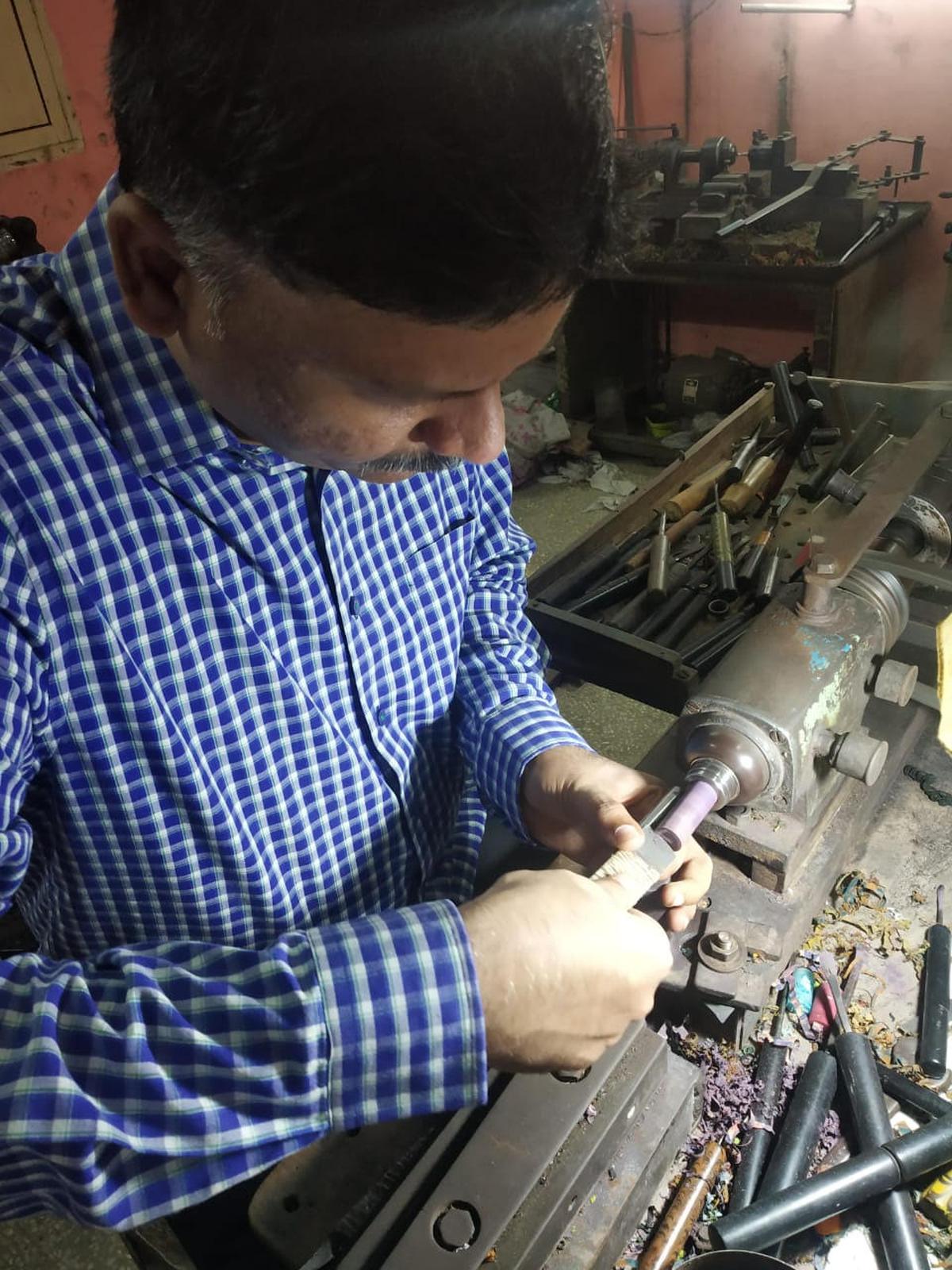
MP Kandan crafting an ink pen
| Photo Credit:
Special Arrangement
Ranga Pens, Chennai
Harking back to 1968, the company took shape in Thiruvallur by MS Pandurangan, now 71. He learned the art of pen-making as a teenager, and his passion remains strong to date. “We don’t know anything apart from pens,” says his son, MP Kandan, adding, “We have been making pens for over 50 years, and we take pride in the family-run craft business.”
Their USP, he says, is the fact that they are all handmade. “We don’t use the lathe but cut pen threads by hand chasing. This requires 20 years of experience to master and is a craft we see only in Japan now,” says Kandan, explaining their unique designs such as bamboo and sugarcane pens, have a loyal fan base across the globe.
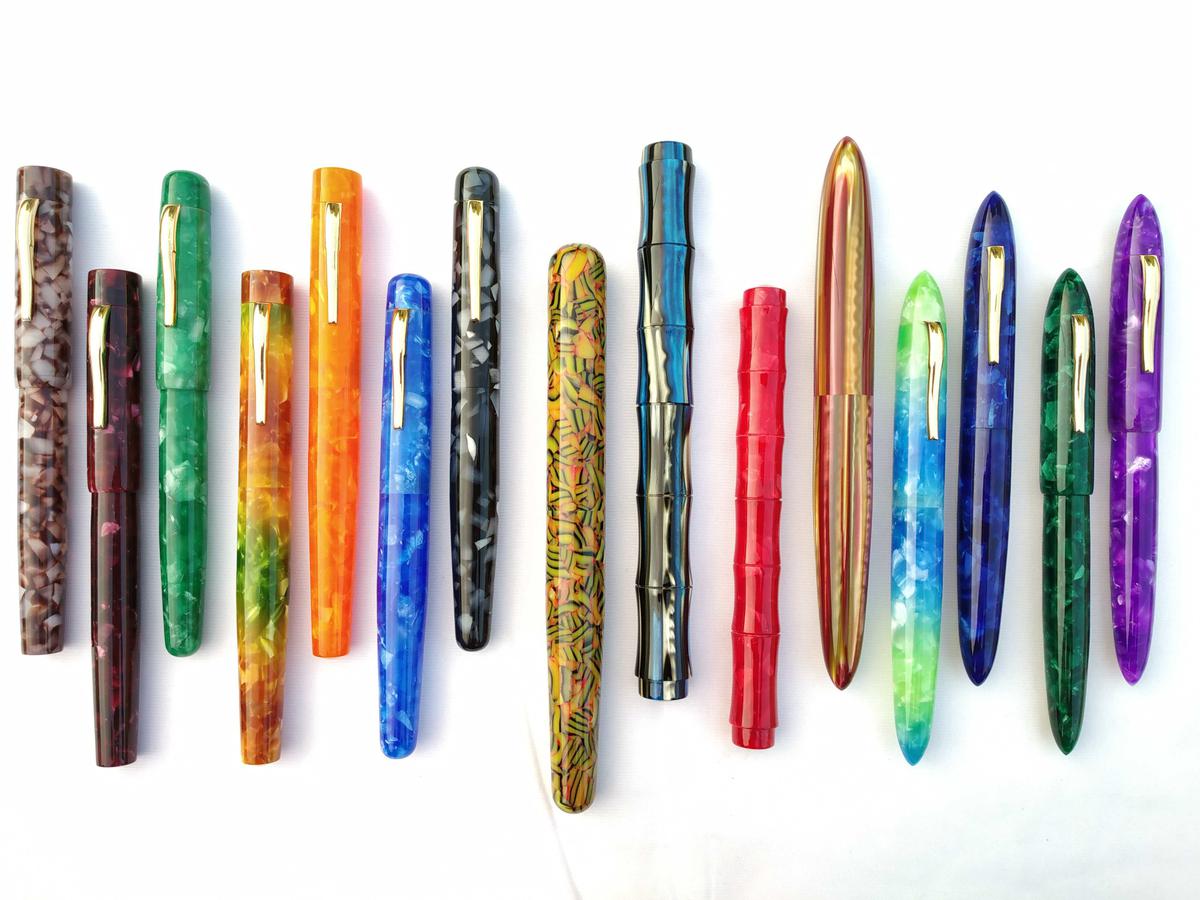
The range of acrylic pens by Ranga Pens
| Photo Credit:
Special Arrangement
“We have a range of over 200 colours, material, 50 models of ebonite and acrylic fountain pens, nibs, and filling mechanisms.” This is why, their prices go up to ₹40,000 for specialised nibs, and the brand has found its place on luxury pen e-retailer, William Penn. It takes three hours to craft one pen, he adds. With plans to work on metal and wooden pens, the brand’s current bestsellers include the bamboo pen (that resembles grass), Abhimanyu (a short pen), Samurai (a thick variant), among others.
Upwards of ₹3,250 on rangapens.com
Fosfor Pens, Pune
Over a decade ago, Manoj Deshmukh came across pen-making kits at a woodcraft store and soon found himself experimenting with the craft in the corner of his bedroom. “Using a small watchmaker’s lathe, I used to try making various parts of a pen as a weekend hobby,” says Manoj, who started the brand Fosfor in 2014, after quitting his 22-year-long career in the IT industry. “I wanted to do something creative. I was a regular fountain pen user for many years, and when I saw an opportunity in custom pen making, I took a leap of faith.” If you are curious about the name, it stands for the element Phosphorus, which has an atomic number of 15 and happens to be his birth date.
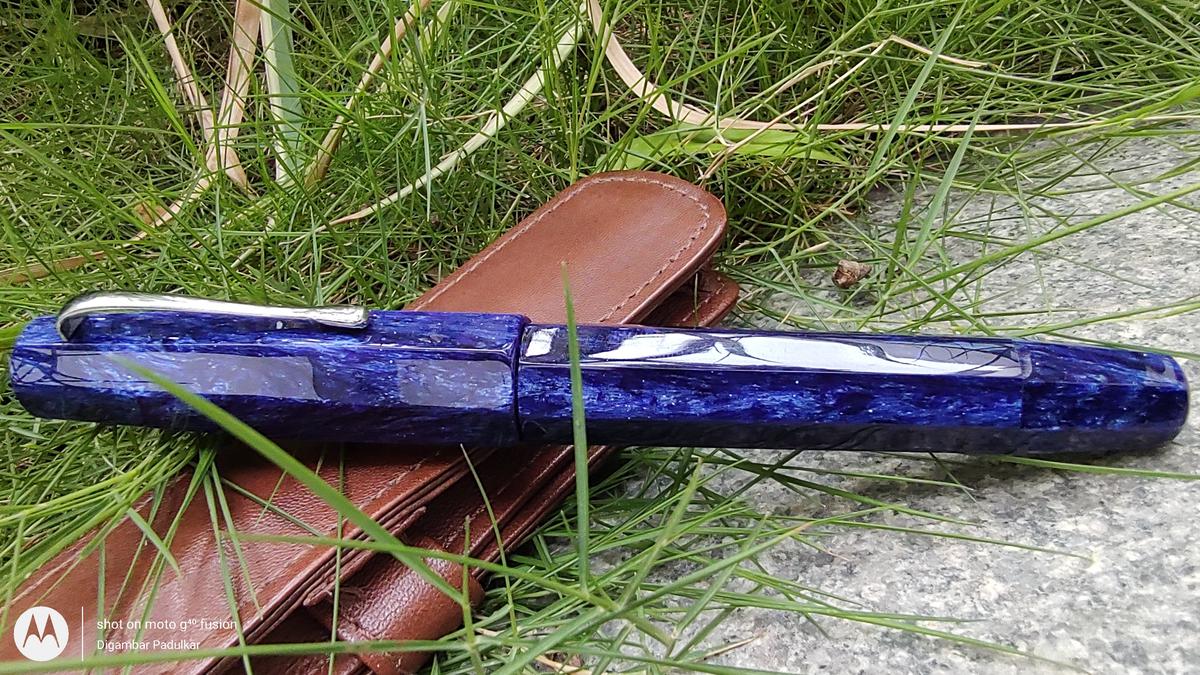
A creation by Manoj Deshmukh
| Photo Credit:
Special Arrangement
“I wanted to make wooden pens as I found them attractive, and at that time no one in India was making wooden fountain pens. My first wooden pen was made using wood from a rolling pin that was purchased by a woman in the Caribbean islands,” he says of his now famous pen variant, Islander. Today, the 54-year-old custom pen maker has not just developed his trademark style, but a loyal following, given that his current wait time for a custom pen is over two years!
Over the years, Manoj has innovated the craft to offer silver bands and clips on his custom pens that come with various ink-filling mechanisms. “I currently offer six-seven variants, and many of my orders are unique pens with distinct designs. I have also come up with an innovative way of casting so that I can create unique patterns,” he says, adding how his “multi-facetted” pens have been another popular creation. “The first pen I launched was called Tikona, which was three-sided, and it evolved from a challenge I took from a customer in 2015. It took me five months to come up with the process of making it,” says Manoj who launched an eight-sided variant, Ashtakone, two years later. These, along with a few wooden pens, continue to be his best-selling designs.
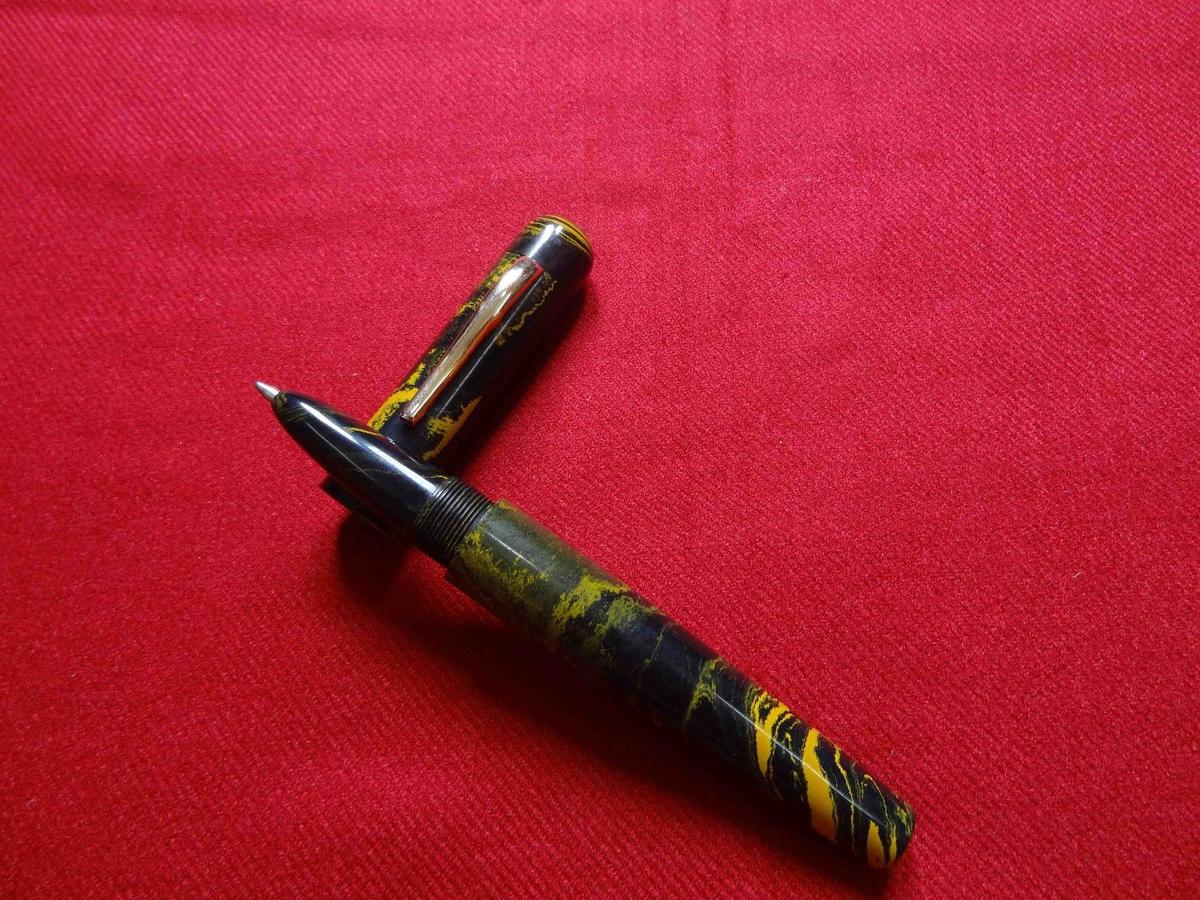
An ink pen crafted by Ranga Pens
| Photo Credit:
Special Arrangement
The pens are made-to-order based on the client’s choice of material, nib, filling mechanism, and metal hardware. Explaining how the craft involves mechanical tasks as well as artistic intervention, he says all aspects are discussed with the client before finalising the design. Each pen is crafted by hand and takes Manoj as little as one day to four-five days to make one writing instrument.
A believer in continuous innovation, Manoj says “there are still many aspects of pen-making that I may not have explored”. One such aspect is making pens out of precious metals, such as silver and titanium. “3D printing is also becoming popular and with technological advances, it may be possible to 3D print usable pens,” he says.
Priced between ₹6,000 and ₹14,000 on fosforpens.com/
Lotus Pens, Mumbai
After a four-decade-long stint at a pen-making company, Arun Singhi turned entrepreneur post-retirement. “Back then, whenever I got time, I used to look up pens on Facebook and Pinterest and wonder when I would make my own. I used to sketch and create rough designs,” he says.
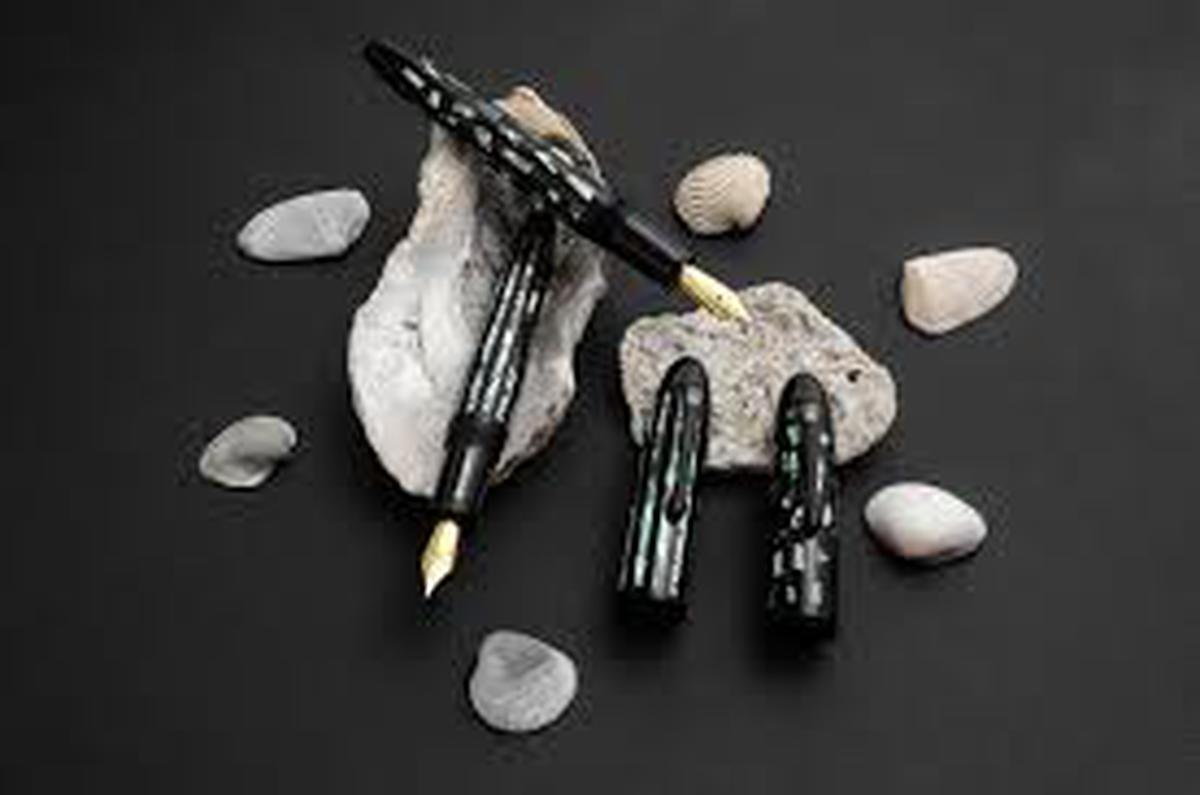
An ink pen by Lotus Pens
| Photo Credit:
Special Arrangement
Launched in 2017, the handmade fountain pen company is today known for its intricate handcrafted, handpainted pens that are sent to clients spread over 90 countries. “We have researched and developed fountain pens from a wide range of materials including sandalwood, Japanese Nikko ebonite, steel, acrylic, among others,” says Arun, explaining how a pen takes a minimum of two days to make, while the handpainted variants of deities and monuments take close to four-six weeks. “From making a sketch to the final stages, the pen goes through many steps. A prototype is created, and it is tested several times before we launch any new design.”
Now working on different types of wood such as burwood, palm wood, and yellow wood, among others, Arun says India is a fast-emerging source and market for artisanal pens. “The world is getting to know about us. Great artisanal pens are conversation starters,” he says.
Upwards of ₹3,200 on lotuspens.com
[ad_2]
Source link


